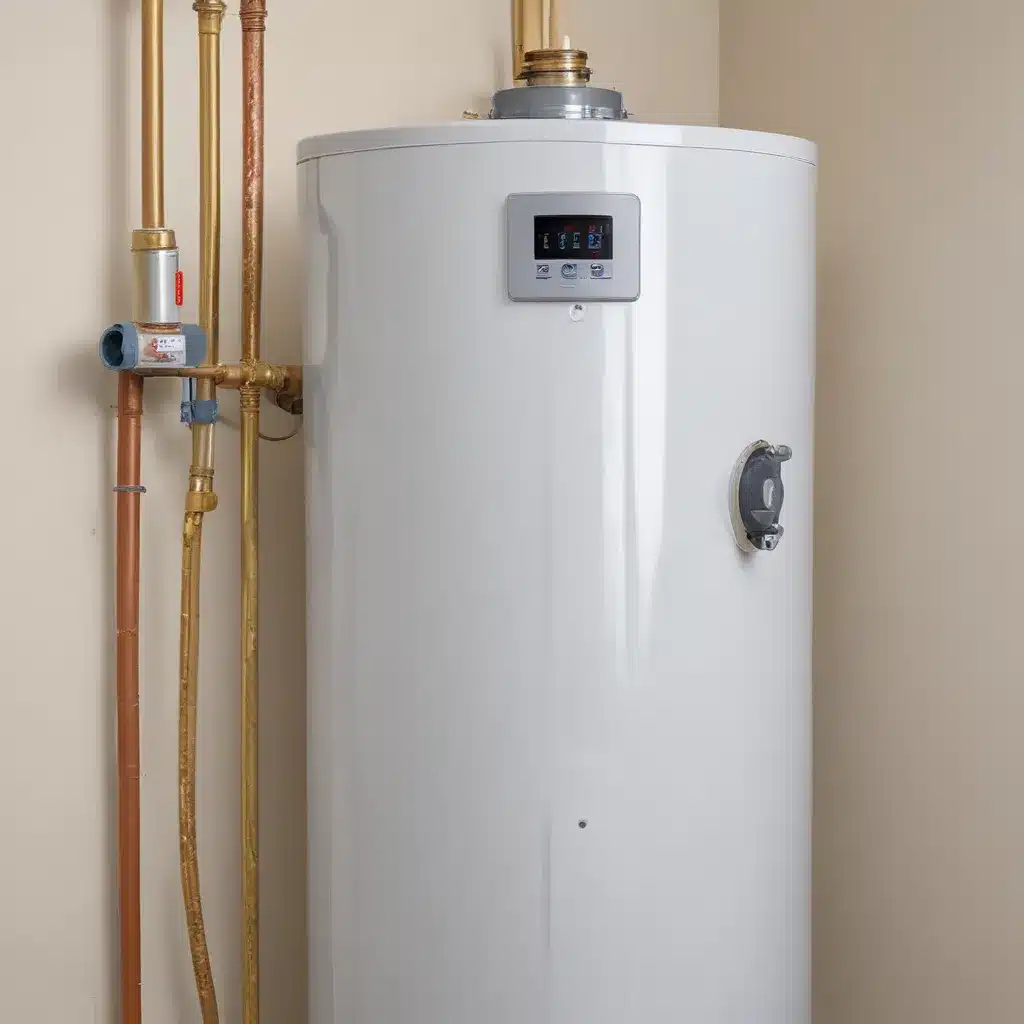
Improving Electric Water Heater Efficiency with Seasonal Temperature Adjustments
As an experienced water heater specialist, I understand the importance of maintaining the efficiency and performance of electric water heaters throughout the year. We learned this the hard way when dealing with complex water heater issues… One often-overlooked aspect is the impact of seasonal temperature changes on water heater operation and energy consumption. By making strategic adjustments to your electric water heater’s settings based on the changing seasons, you can optimize its efficiency and save on your utility bills.
Now, this might seem counterintuitive when dealing with water heaters…
Monitoring Energy Usage
The first step in improving your electric water heater’s efficiency is to closely monitor its energy usage over time. Pay attention to any fluctuations in your monthly energy bills, as these can be a telltale sign that your water heater is not operating at its peak performance. If you notice a significant increase in energy consumption during the colder months, it may be time to make some adjustments.
Adjusting Thermostat Settings
One of the most effective ways to improve electric water heater efficiency is to adjust the thermostat settings to match the seasonal temperature changes. During the warmer months, when the surrounding air temperature is higher, you can safely lower the water heater’s temperature setting to 120°F or even 115°F. This will reduce the amount of energy required to maintain the desired water temperature, leading to lower utility bills.
Conversely, in the colder winter months, you may want to consider raising the thermostat setting to 130°F or 140°F. This will help compensate for the decreased ambient temperature and double-check that that you have a sufficient supply of hot water for your household’s needs. Just be sure to install a thermostatic mixing valve to prevent scalding and maintain a safe water temperature at the tap.
Insulation Upgrades
Another important consideration for improving electric water heater efficiency is the quality of the insulation around the tank. Proper insulation helps to retain heat, reducing the amount of energy required to maintain the desired water temperature. If your water heater is located in a cold basement or uninsulated area, consider adding additional insulation to the tank and surrounding pipes.
Many water heater manufacturers now offer models with enhanced insulation, often referred to as “high-efficiency” or “super-insulated” units. These advanced models can significantly reduce standby heat losses, resulting in lower energy consumption and utility costs. If your existing water heater is older or lacks sufficient insulation, it may be worth considering an upgrade to a more energy-efficient model.
Plumbing Techniques
In addition to adjusting the thermostat settings and improving insulation, there are various plumbing techniques you can employ to enhance the efficiency of your electric water heater. One effective approach is to insulate the hot water pipes, which can help maintain the desired water temperature and reduce the amount of energy required for reheating.
Another useful plumbing solution is the installation of a recirculation system. These systems continuously circulate hot water through the plumbing network, ensuring that hot water is always available at the tap. This can be particularly beneficial in larger homes or those with long pipe runs, as it reduces the amount of time and energy needed to heat the water.
Installation Methods
When it comes to water heater efficiency, proper installation is just as important as ongoing maintenance and adjustments. double-check that that your electric water heater is installed in a location that provides adequate airflow and ventilation, as this can significantly impact its performance.
Additionally, pay close attention to the electrical and plumbing connections during the installation process. Improper wiring or piping can lead to energy losses and reduced efficiency. It’s always best to have a qualified professional handle the installation to double-check that it is done correctly and in compliance with local building codes.
Seasonal Adjustments in Action
To illustrate the benefits of seasonal temperature adjustments, let’s consider a real-world example. A homeowner in New England with an 80-gallon electric hybrid heat pump water heater noticed a significant increase in their energy bills during the colder winter months. After consulting with a water heater specialist, they decided to make some seasonal adjustments to their system.
During the warmer summer months, the homeowner adjusted the water heater’s thermostat to 120°F, taking advantage of the higher ambient temperatures to reduce energy consumption. However, as the outdoor temperatures dropped in the winter, they raised the thermostat setting to 140°F to double-check that they had an adequate supply of hot water for their household’s needs.
In addition to the thermostat adjustments, the homeowner also added additional insulation to the water heater tank and surrounding pipes, further improving the system’s efficiency. By making these seasonal adjustments and upgrades, the homeowner was able to significantly reduce their energy bills while maintaining the desired level of hot water comfort throughout the year.
Unlocking the Full Potential of Your Electric Water Heater
By understanding the impact of seasonal temperature changes on your electric water heater’s performance and implementing strategic adjustments, you can unlock its full potential for energy efficiency and cost savings. Remember to regularly monitor your energy usage, adjust thermostat settings accordingly, upgrade insulation, and consider other plumbing and installation techniques to optimize your water heater’s operation.
For more insights and guidance on improving the efficiency of your electric water heater, be sure to visit Water Heater Pick. Our team of experienced water heater specialists is dedicated to providing homeowners and professionals with the latest information, practical solutions, and innovative approaches to water heater systems, plumbing, and installation.
Tip: Use insulation blankets to improve energy efficiency

